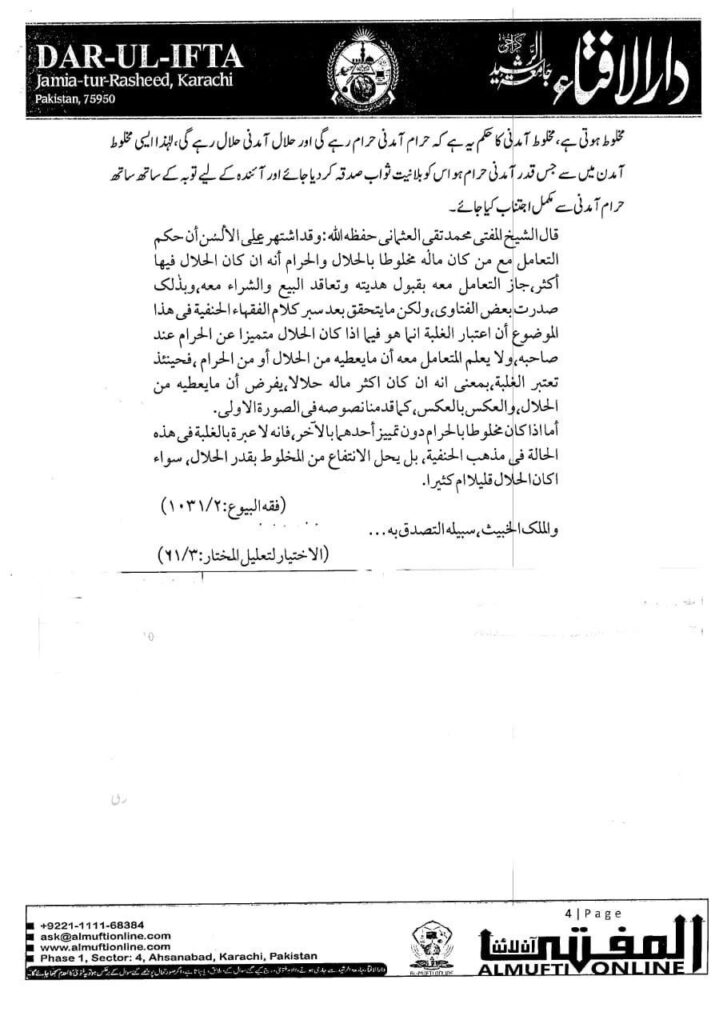BFSI Income Non-Compliant! Yes that’s true IslamicStock take BFSI Revenue Non-Compliant because there are many reasons,
The BFSI (Banking, Financial Services, and Insurance) sector relies on a variety of software solutions to manage its operations. These tools are essential for banking, financial services, and insurance providers, covering everything from core banking to analytics and claims management. The revenue generated from these software solutions raises significant compliance concerns. Below, we’ll explore why IslamicStock categorizes BFSI income as non-compliant and delve into the necessary modifications required for Islamic banking.
“IslamicStock conducts in-depth manual screenings to ensure full compliance with Islamic principles. Unlike automated systems, we meticulously analyze every aspect of a company’s financial and operational structure by reviewing annual reports, revenue streams, and business models in detail. If a company invests in another entity, we extend our screening process to the subsidiary or invested company, ensuring that even indirect income sources are compliant. This rigorous approach allows us to uncover hidden non-compliant activities and provide transparency and trust for Sharia-conscious investors.”
Please Note We Added some important Fatawas at the bottom of the Article
The Core Software in BFSI Sector
The BFSI sector utilizes software solutions such as:
- Banking Software:
- Examples: Finacle, Temenos, FIS, Oracle FLEXCUBE
- Functions: Core banking, mobile banking, wealth management, and analytics.
- Financial Services Software:
- Examples: Bloomberg Terminal, Thomson Reuters Eikon, MSCI Barra, Moody’s Analytics
- Functions: Real-time market data, news, analytics, and trading tools.
- Insurance Software:
- Examples: Guidewire, Duck Creek, Sapiens, Insurity
- Functions: Policy administration, billing, and claims management.
These software tools play a critical role in the operations of conventional BFSI institutions. However, their revenue structures and business models often conflict with Islamic finance principles.
Revenue Breakdown and Its Non-Compliance
The revenue in the BFSI sector is predominantly service-based, distributed as follows:
- Banking: 40%
- Finance: 30%
- Insurance: 20%
- Corporate Services: 10%
Notably, core banking software (CBS) contributes only about 2% of the total 40% from the banking sector, with the majority of the revenue coming from service contracts.So it’s not only about selling software to Bank but it include recurring services(Major Revenue source). These services are sold to banks and other institutions on a monthly or yearly subscription basis or maintenance and support, generating recurring revenue. This service-based model is problematic for several reasons:
- Service Revenue Prohibition:
- The Messenger of Allah (PBUH) cursed the one who consumes riba, the one who gives it, the one who records it, and the two who witness it, and he said: They are all the same. (Ref)
- Non-Compliant Practices:
- Since most BFSI software solutions serve conventional institutions, their core functionalities often involve interest-based transactions, which are strictly prohibited in Islam.
Why Current Software Cannot Be Used Without Modifications
Standard BFSI software does not align with Islamic banking principles. Islamic banking operates on a foundation that prohibits the charging or payment of interest (riba). For the software to be Sharia-compliant, significant modifications are necessary, as highlighted below:
Modifications for Banking Software
- Interest-Free Loans (Qard Hasan):
- Implement features to support interest-free loan products.
- Profit and Loss Sharing (Mudarabah, Musharakah):
- Adapt modules for profit-sharing investments instead of interest-based transactions.
- Islamic Investment Accounts:
- Modify deposit account structures to adhere to Sharia-compliant principles.
- Islamic Contracts:
- Add modules to support Islamic financial contracts such as Ijarah (leasing), Musharakah (partnership), and Istisna (manufacturing finance).
- Zakat Management:
- Include features for calculating and distributing Zakat.
- Asset-Backed Financing:
- Ensure every transaction is linked to a real asset, which is a key principle of Islamic finance.
Modifications for Insurance Software
- Takaful (Islamic Insurance):
- Introduce models based on mutual cooperation and shared responsibility.
- Risk Pooling:
- Adapt risk management frameworks to fit Takaful principles.
Oracle FLEXCUBE: As A Unique Case
Among the mentioned software providers, Oracle FLEXCUBE is the only company offering an Islamic banking module. However, this module accounts for an insignificant portion of its overall revenue and does not impact the company’s revenue derived from non-compliant software. Furthermore, Oracle is not listed in India, limiting its accessibility for many Islamic finance institutions.
Why BFSI Income Non-Compliant Classified by IslamicStock
IslamicStock considers BFSI Income Non-Compliant because:
- Predominantly Non-Islamic Revenue Sources:
- Most BFSI software solutions generate revenue from conventional banking services that heavily rely on interest-based operations.
- Service-Based Revenue Model:
- The recurring revenue model, where banks pay for software services, is akin to facilitating conventional interest-based activities.
- Incompatibility with Sharia Principles:
- Without extensive modifications, these software solutions cannot cater to Islamic banking. Yet, even modified software does not significantly impact the revenue breakdown of companies like Oracle or FIS.
The Path Forward for Islamic Finance
For the BFSI sector to align with Islamic principles, it is imperative to:
- Develop dedicated software solutions designed exclusively for Islamic finance.
- Ensure that all revenue streams are derived from Sharia-compliant activities.
- Educate stakeholders about the importance of separating permissible income from non-compliant sources.
Conclusion:
Don’t be misled by those comparing it to calculators—BFSI is far more than that, and a big no to such oversimplifications!
The BFSI sector reliance on software solutions that cater to conventional banking practices presents a significant challenge for Islamic finance institutions. Companies like Oracle, Finacle, and Temenos continue to derive the majority of their revenue from non-compliant activities, making it difficult for IslamicStock to classify their income as permissible. Until comprehensive Sharia-compliant solutions are developed and widely adopted, BFSI income will remain a concern for those adhering to Islamic finance principles. We have explained why IslamicStock Consider BFSI Income Non-Compliant.
Read Fatawa from DAR-UL-IFTA


BFSI Income Non-Compliant Read this Fatwa as well “Open“
BFSI Income Non-Compliant Read more about the topic click here

